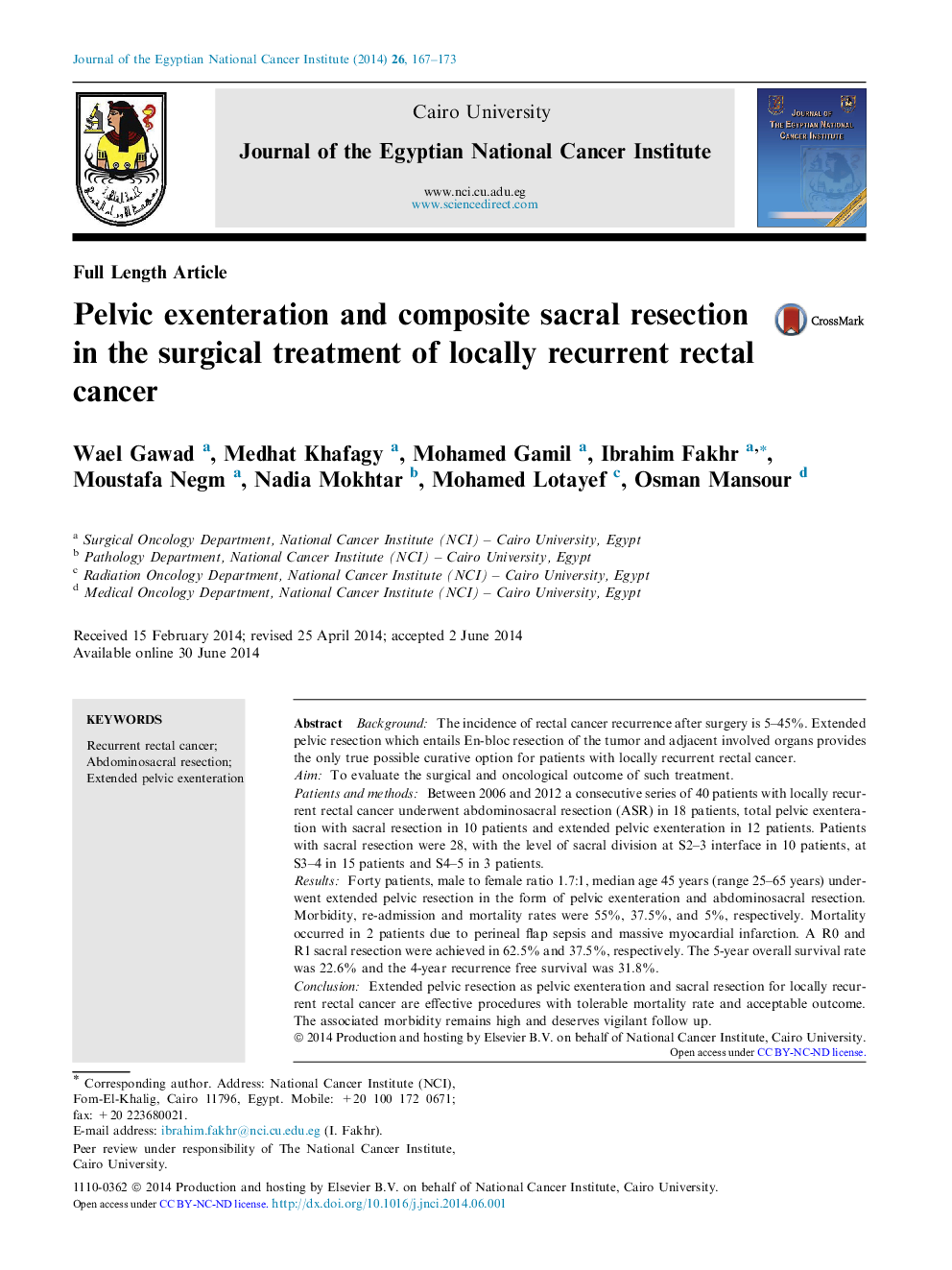| Article ID | Journal | Published Year | Pages | File Type |
|---|---|---|---|---|
| 3989014 | Journal of the Egyptian National Cancer Institute | 2014 | 7 Pages |
BackgroundThe incidence of rectal cancer recurrence after surgery is 5–45%. Extended pelvic resection which entails En-bloc resection of the tumor and adjacent involved organs provides the only true possible curative option for patients with locally recurrent rectal cancer.AimTo evaluate the surgical and oncological outcome of such treatment.Patients and methodsBetween 2006 and 2012 a consecutive series of 40 patients with locally recurrent rectal cancer underwent abdominosacral resection (ASR) in 18 patients, total pelvic exenteration with sacral resection in 10 patients and extended pelvic exenteration in 12 patients. Patients with sacral resection were 28, with the level of sacral division at S2–3 interface in 10 patients, at S3–4 in 15 patients and S4–5 in 3 patients.ResultsForty patients, male to female ratio 1.7:1, median age 45 years (range 25–65 years) underwent extended pelvic resection in the form of pelvic exenteration and abdominosacral resection. Morbidity, re-admission and mortality rates were 55%, 37.5%, and 5%, respectively. Mortality occurred in 2 patients due to perineal flap sepsis and massive myocardial infarction. A R0 and R1 sacral resection were achieved in 62.5% and 37.5%, respectively. The 5-year overall survival rate was 22.6% and the 4-year recurrence free survival was 31.8%.ConclusionExtended pelvic resection as pelvic exenteration and sacral resection for locally recurrent rectal cancer are effective procedures with tolerable mortality rate and acceptable outcome. The associated morbidity remains high and deserves vigilant follow up.
